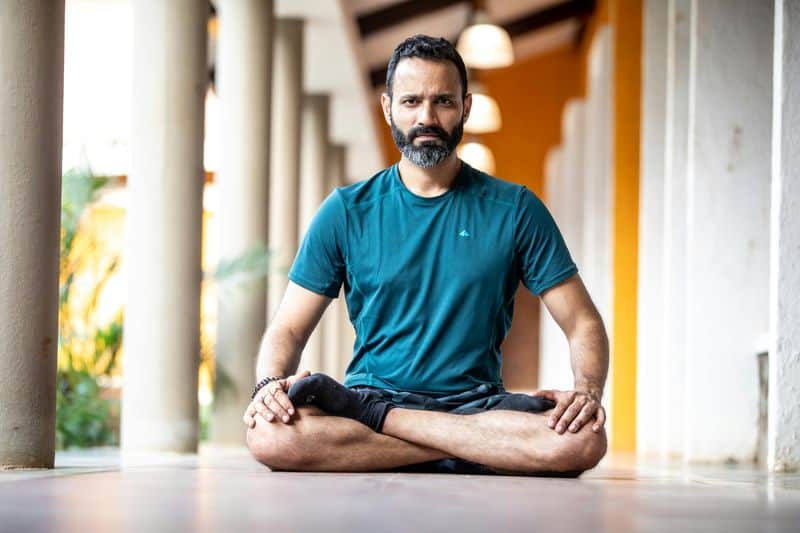Have you ever wondered what makes people who believe in a higher power different? Faith shapes how we see the world and face life’s challenges.
Many believers share common traits that help them navigate life with purpose and hope, regardless of their specific religion or spiritual path.
1. Unshakable Optimism
Life throws curveballs at everyone, but those with faith often catch them with a smile. Their belief system provides a foundation of hope that tomorrow brings new possibilities, even when today feels impossible.
This positive outlook isn’t blind optimism—it’s grounded in the conviction that a higher power guides all things toward ultimate good. When facing problems, believers tend to look for silver linings and hidden lessons.
During tough times, this optimism becomes their superpower. Rather than seeing obstacles as dead ends, they view them as detours on a meaningful journey orchestrated by something greater than themselves.
2. Deep Sense of Purpose
Ever notice how some people seem to navigate life with an internal compass? Believers often walk through their days with a profound sense that their existence matters in a grand cosmic plan.
This isn’t about ego—quite the opposite. Their purpose stems from feeling connected to something eternal and meaningful. Daily tasks take on special significance when viewed as part of a divine assignment or spiritual journey.
Whether teaching children, growing food, or creating art, believers infuse ordinary activities with extraordinary meaning. This sense of purpose provides motivation during mundane moments and resilience during life’s inevitable disappointments.
3. Remarkable Resilience
“This too shall pass” isn’t just a saying for believers—it’s a lived reality. Their faith creates an emotional safety net during life’s free-falls, catching them when circumstances seem overwhelming.
Studies show that people with spiritual beliefs often recover faster from trauma and setbacks. They don’t necessarily experience fewer hardships, but they process difficulties differently. Believers frequently view challenges as opportunities for spiritual growth rather than random misfortunes.
A grandmother who prayed through cancer treatments once told me, “I bend but don’t break because I’m held by something stronger than myself.” This resilience manifests as a quiet strength that weathers life’s storms with dignity.
4. Heartfelt Gratitude
Morning coffee becomes a miracle when viewed through eyes of faith. Believers often possess an almost childlike wonder about ordinary things—sunrise, rainfall, a stranger’s kindness—seeing them as gifts rather than entitlements.
Their gratitude extends beyond good fortune to embrace lessons learned through difficulty. A devout friend once remarked, “I’m thankful even for my struggles—they’ve shaped who I am.” This perspective transforms how they experience daily life.
Gratitude journals, prayer practices, and mindful moments punctuate believers’ routines. By acknowledging blessings both big and small, they create a positive feedback loop that enhances wellbeing and fosters contentment regardless of circumstances.
5. Genuine Compassion
Seeing others through spiritual eyes transforms strangers into sacred beings worthy of care. Believers often extend compassion beyond their immediate circles, recognizing divine worth in everyone they encounter.
Many faith traditions emphasize caring for the vulnerable as a core practice. This manifests in both grand gestures and small kindnesses—from founding hospitals to offering a listening ear. The motivation springs from seeing others as fellow travelers on a spiritual journey.
A homeless shelter volunteer once explained, “When I serve meals, I’m not just feeding bodies—I’m honoring souls.” This perspective elevates compassion from occasional charity to a consistent way of moving through the world with open hands and hearts.
6. Radical Forgiveness
Grudges require energy believers prefer to invest elsewhere. Their spiritual framework often includes powerful forgiveness practices that free them from resentment’s heavy chains.
A mother who forgave her child’s killer stunned reporters with her explanation: “Holding hatred would dishonor my faith and destroy what remains of my heart.” While forgiveness doesn’t happen overnight, believers typically view it as essential spiritual work rather than an optional virtue.
Interestingly, research shows this forgiveness benefits the forgiver as much as the forgiven—lowering blood pressure, reducing anxiety, and improving sleep. By releasing grievances through prayer or meditation, believers create space for peace to enter their lives.
7. Thoughtful Self-Reflection
Quiet moments aren’t empty spaces to believers—they’re opportunities for sacred conversation. Many faith traditions encourage regular self-examination through prayer, meditation, or journaling to nurture spiritual growth.
Unlike mere self-improvement, this reflection centers on aligning with deeper values and divine purpose. Believers frequently ask themselves probing questions: “Am I living authentically? How can I better serve? What needs healing within me?”
A monk once shared, “The loudest prayers happen in silence when we finally hear ourselves clearly.” This introspective habit helps believers maintain integrity between their professed values and daily actions, creating consistency that others find trustworthy and grounding.
8. Authentic Humility
Believing in something greater naturally puts personal ego in perspective. Those with faith often display a refreshing humility that acknowledges both their significance and their smallness in the cosmic order.
Far from self-deprecation, spiritual humility manifests as realistic self-assessment and openness to learning from everyone. A renowned surgeon who prays before operations explained, “My skills matter, but I’m ultimately just a instrument in greater hands.”
Believers typically welcome different viewpoints, recognizing no single person holds complete truth. This humility creates space for genuine connection across differences. By holding their convictions with both confidence and gentleness, they invite dialogue rather than debate.
9. Unwavering Moral Compass
Standing firm while society’s values shift like sand requires inner anchoring. Believers often navigate ethical decisions with remarkable consistency, guided by principles they consider timeless rather than trendy.
A businessman declined a profitable but questionable deal, explaining, “Some prices are too high even when the math looks good.” This moral clarity doesn’t mean rigidity—many thoughtfully wrestle with complex issues while maintaining core values.
Their ethical framework typically extends beyond legal requirements to address motivation and impact. By asking “What would love do?” rather than “What can I get away with?” believers often make choices that prioritize integrity over immediate advantage, creating a legacy of trustworthiness in their communities.
10. Comfortable With Mystery
Paradoxically, strong faith often accompanies comfort with unanswered questions. Believers frequently embrace the tension between certainty and mystery, finding peace in not knowing everything.
“Faith isn’t the absence of doubt—it’s trust despite it,” explained a theology professor who lost his daughter. This capacity to hold contradictions allows believers to navigate complex realities without oversimplifying them.
Many find beauty in life’s mysteries rather than anxiety. Their spiritual framework provides enough certainty for grounding while leaving space for wonder and discovery. By accepting that some questions have answers beyond human understanding, believers develop patience with ambiguity that serves them well in an increasingly complex world.











